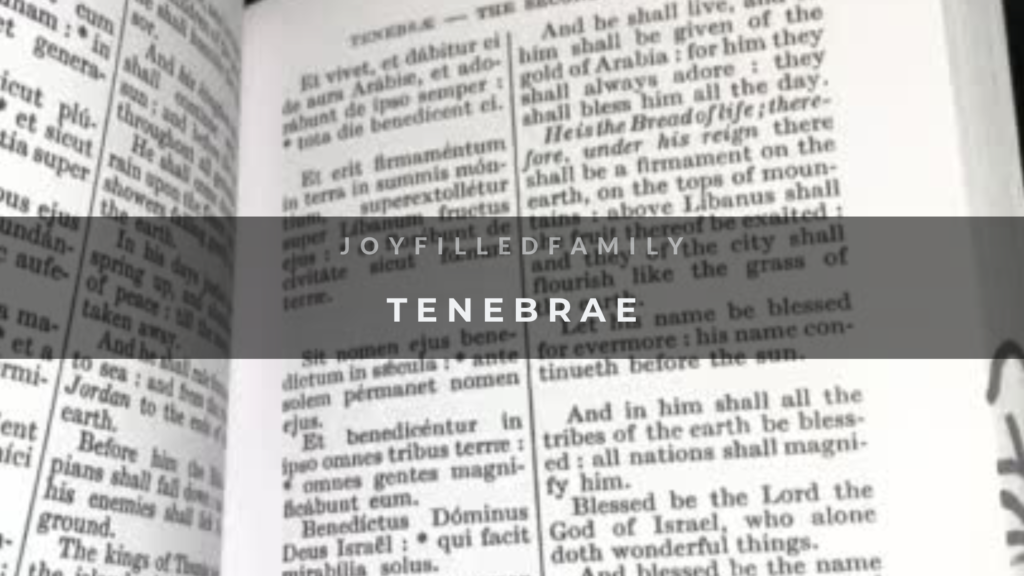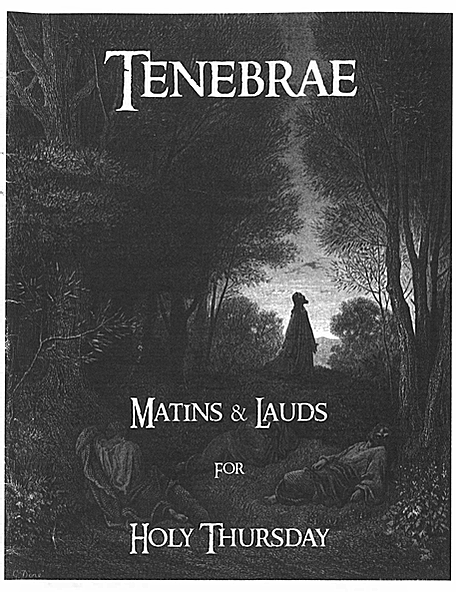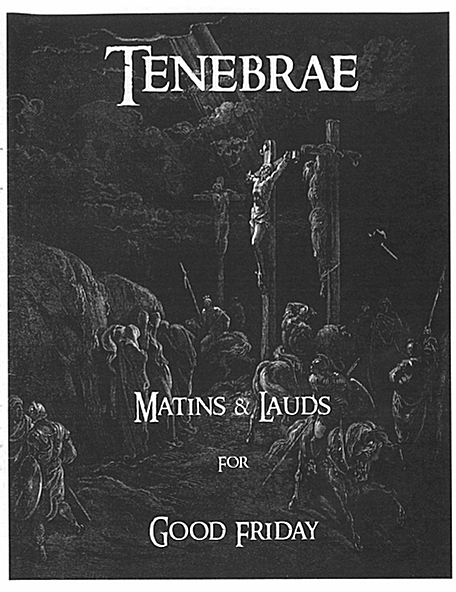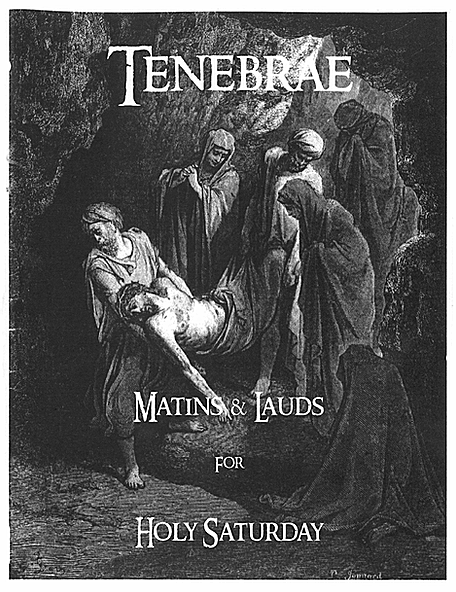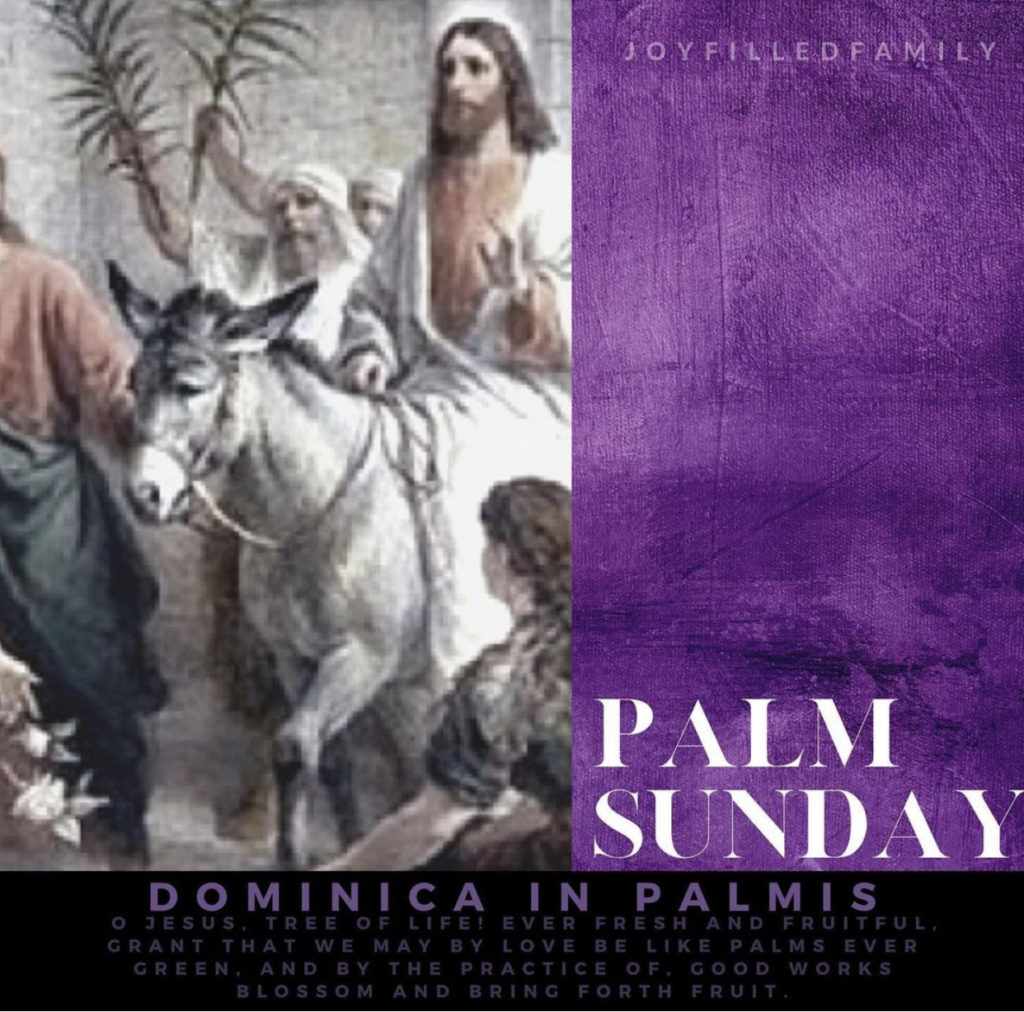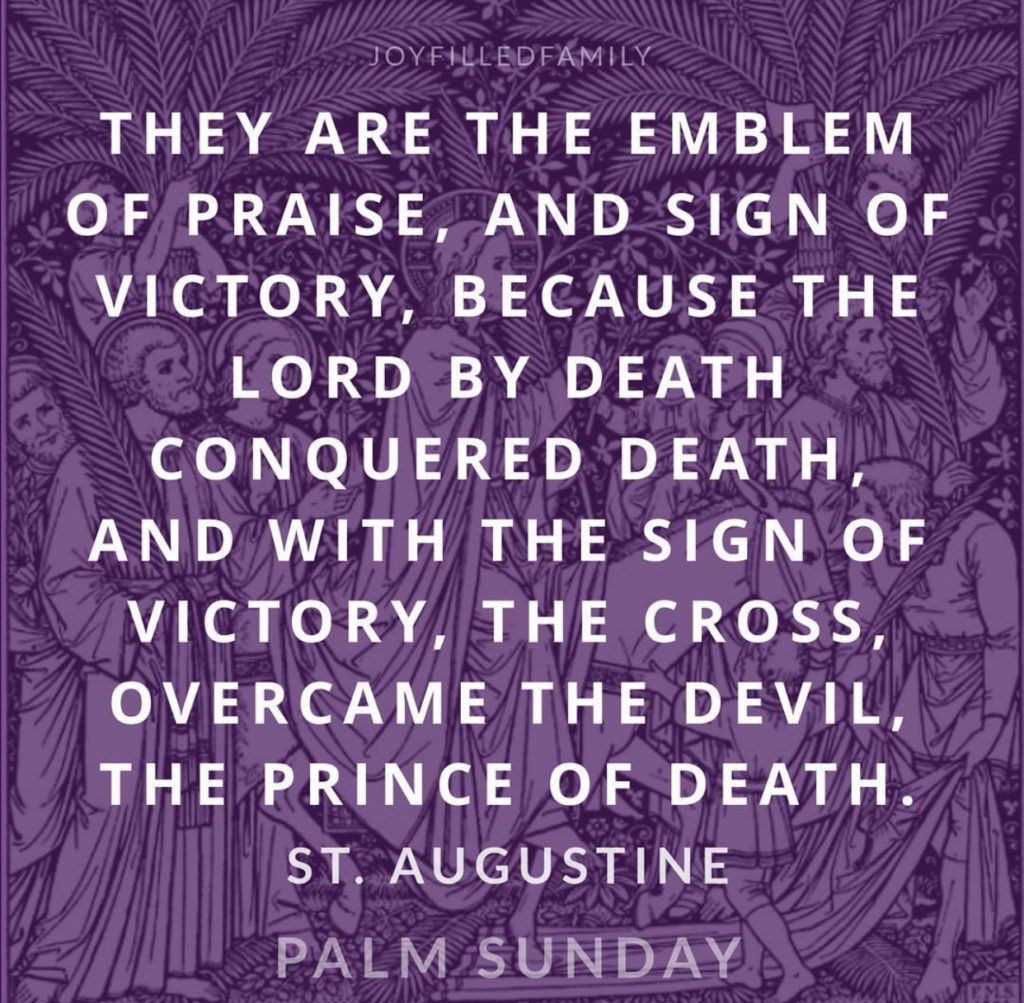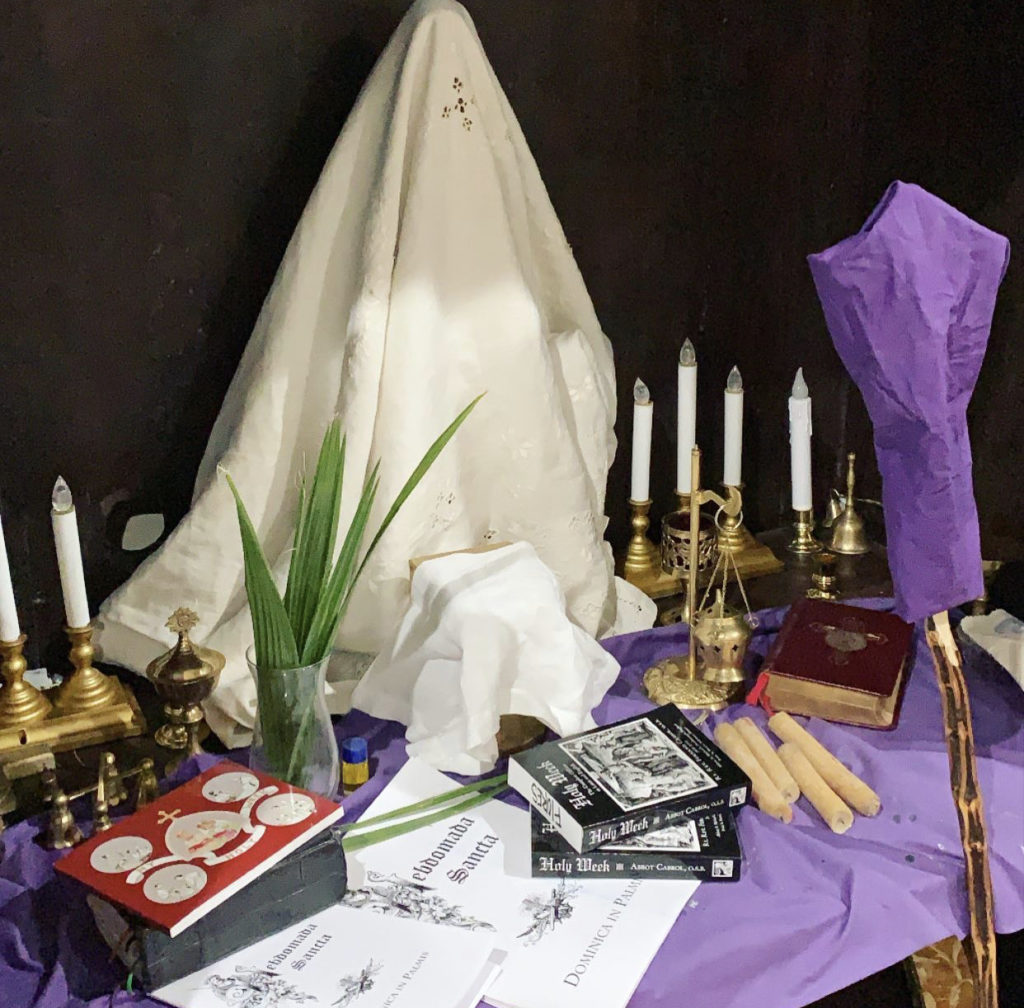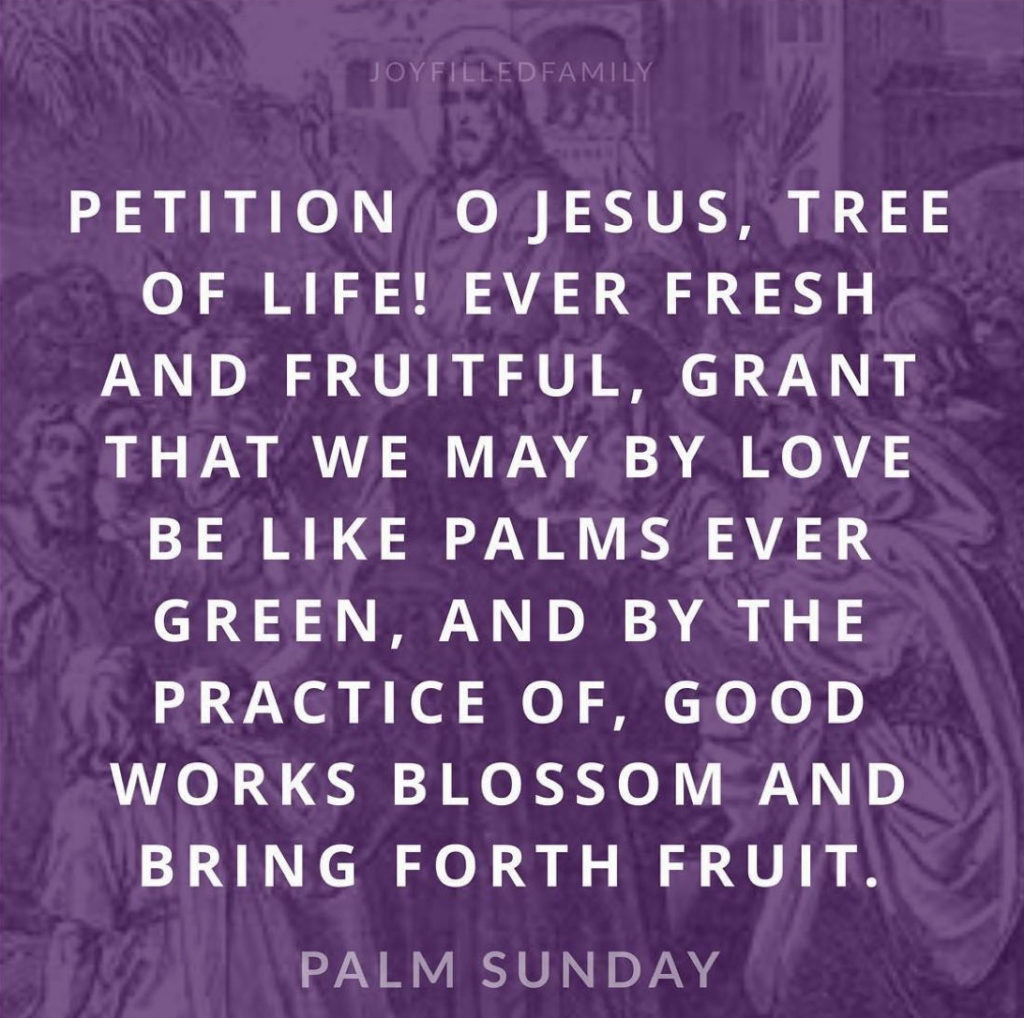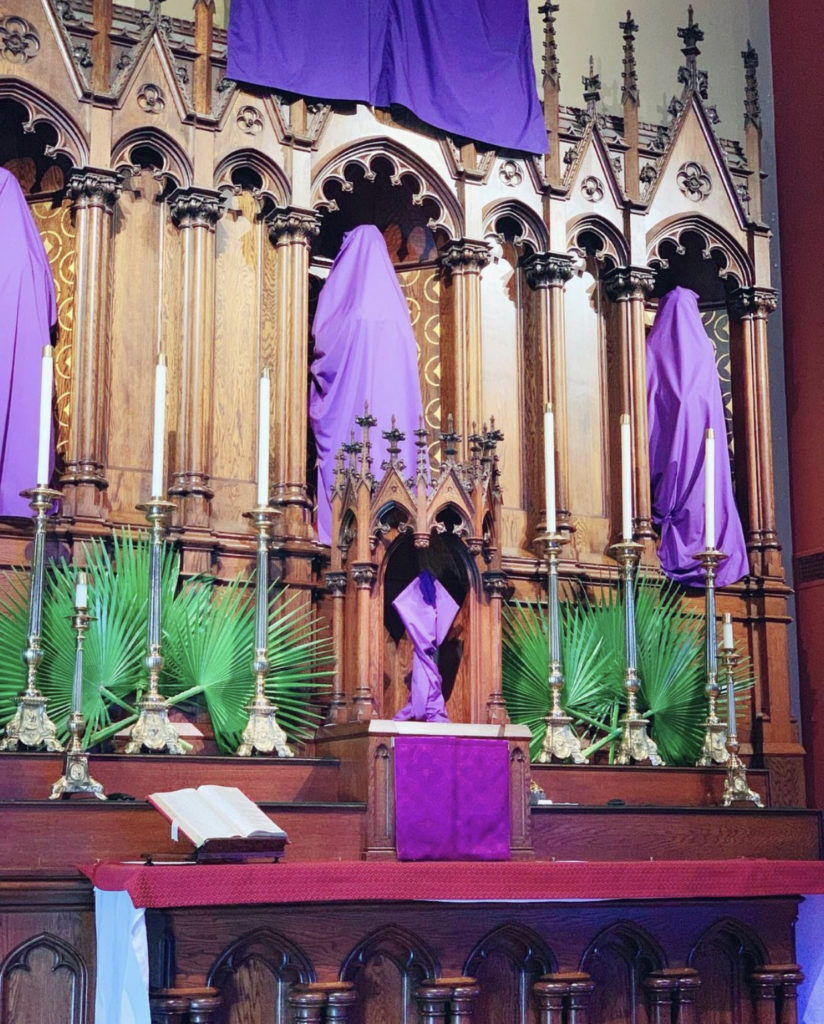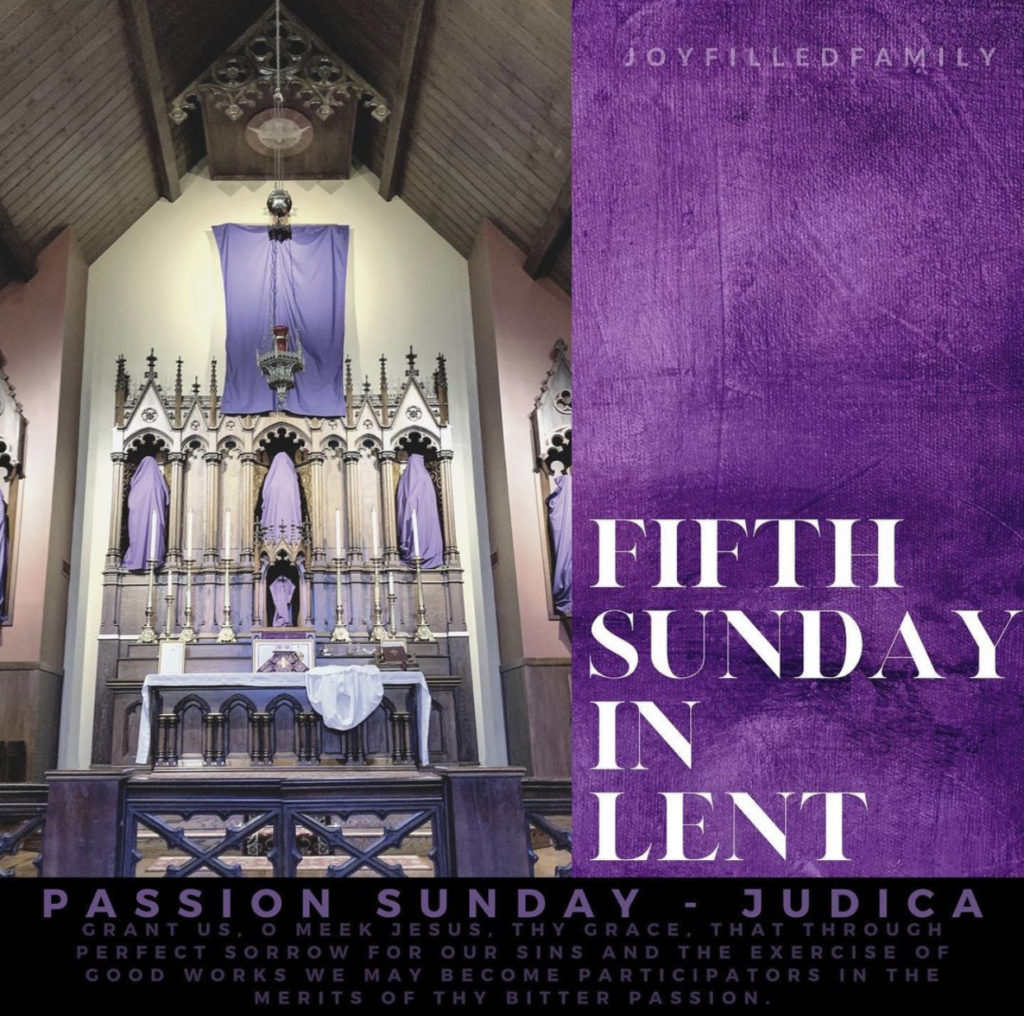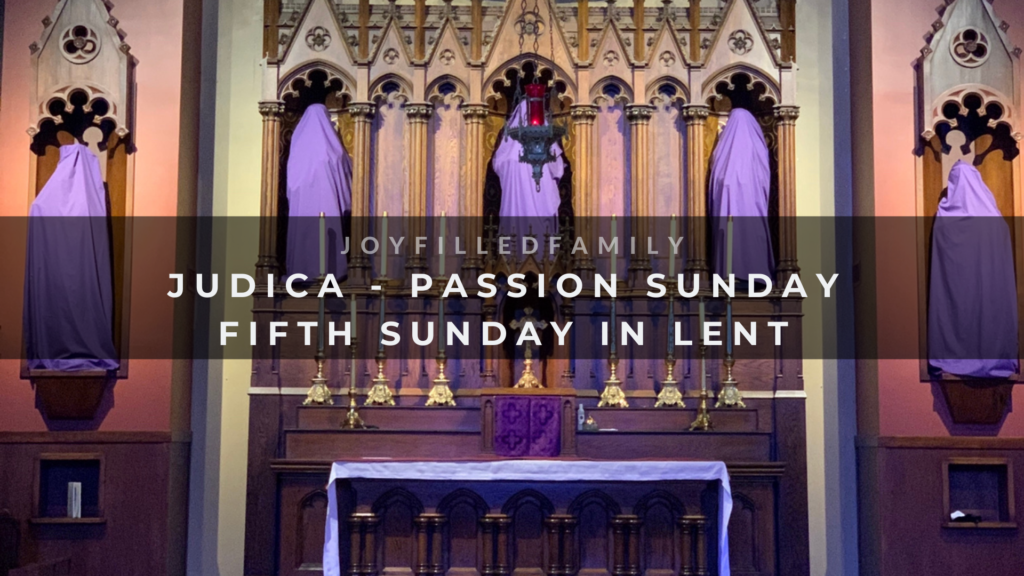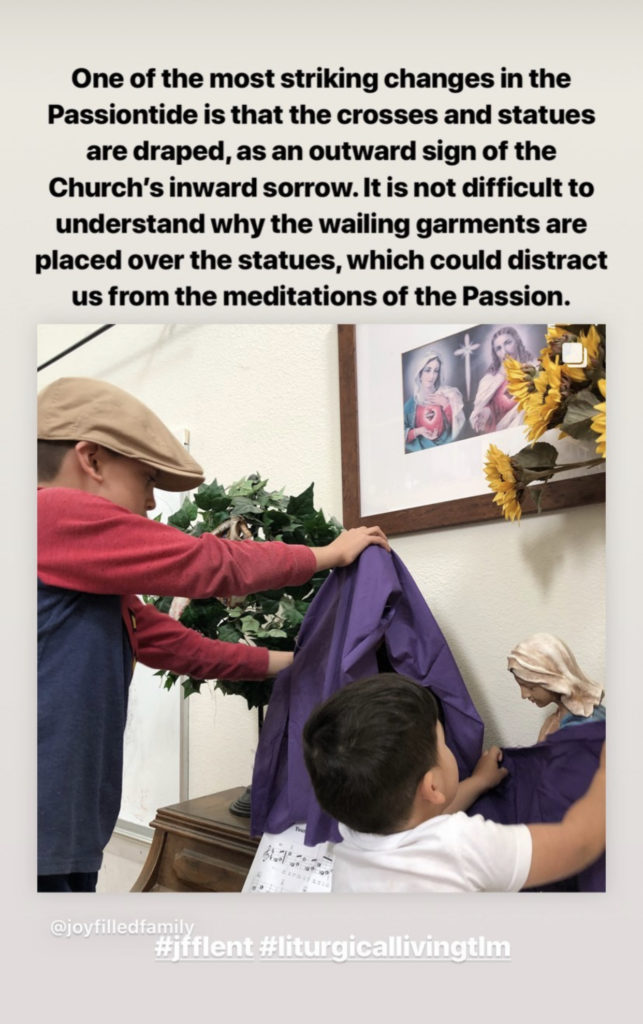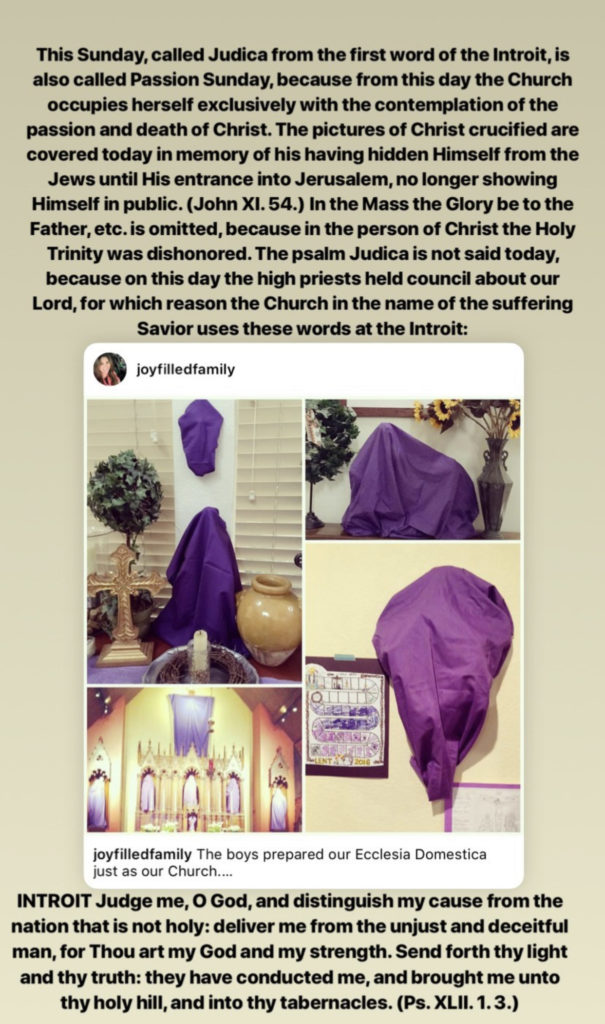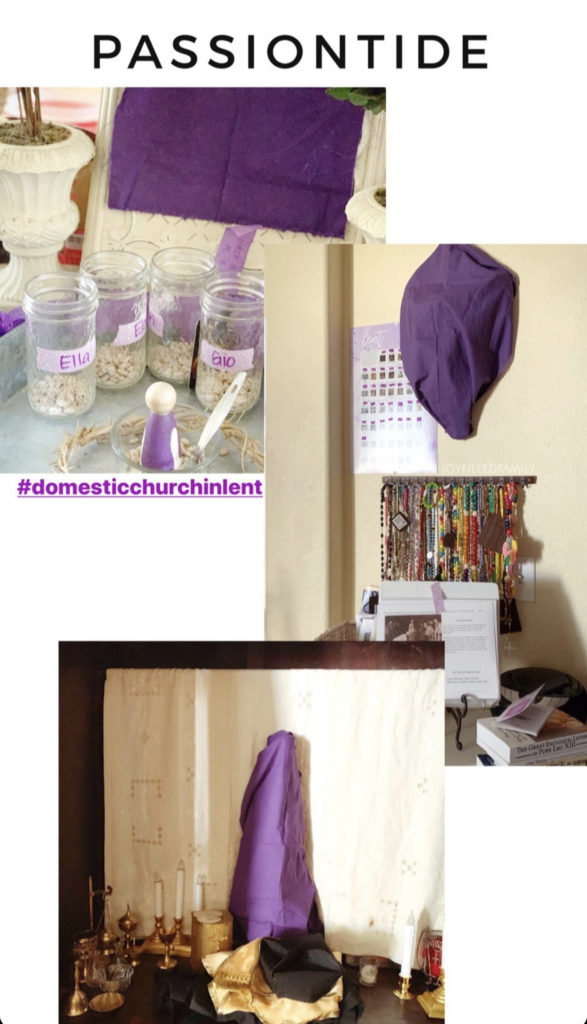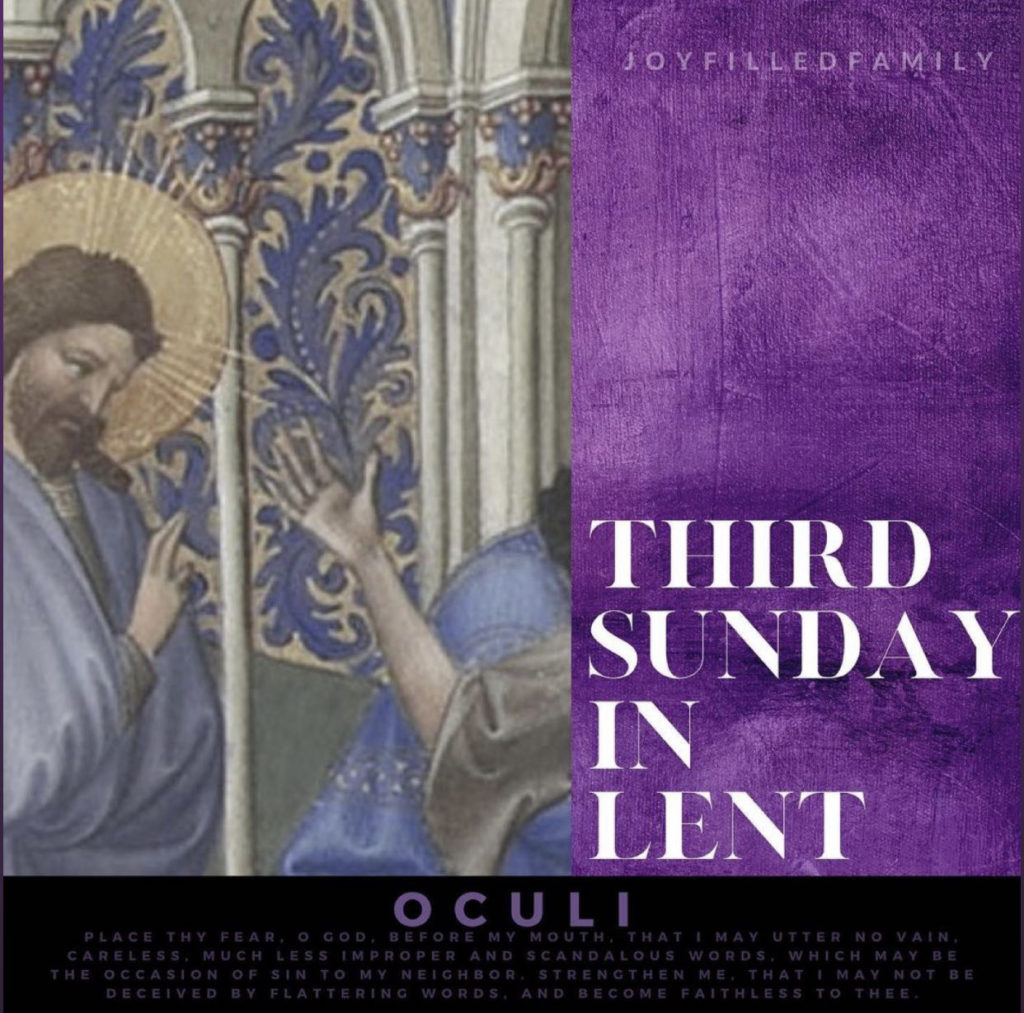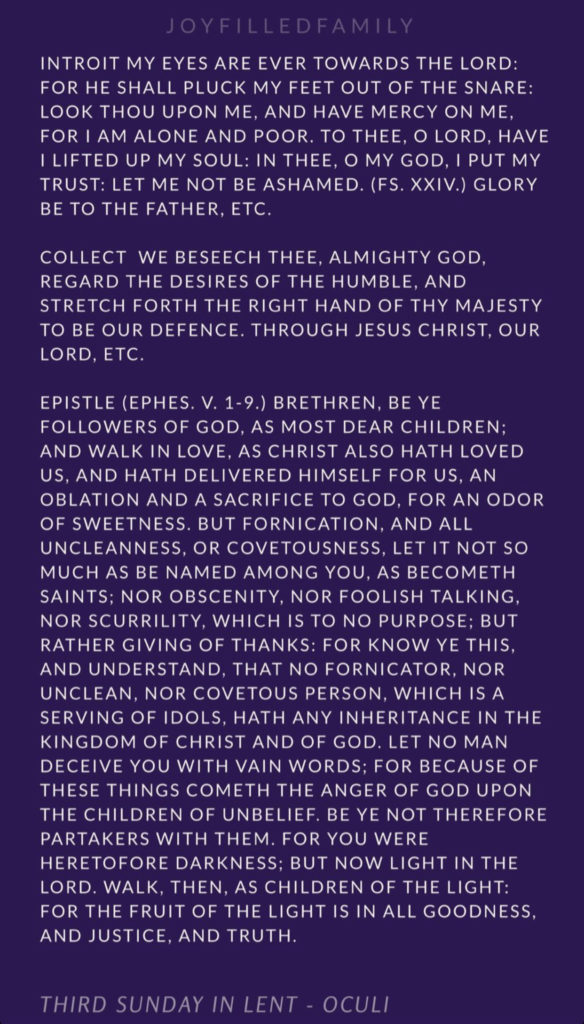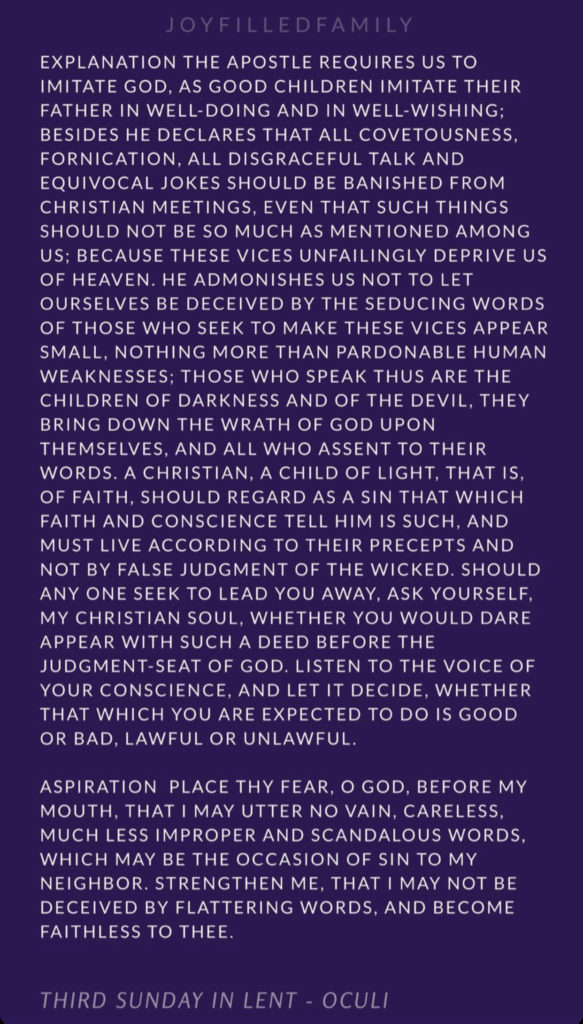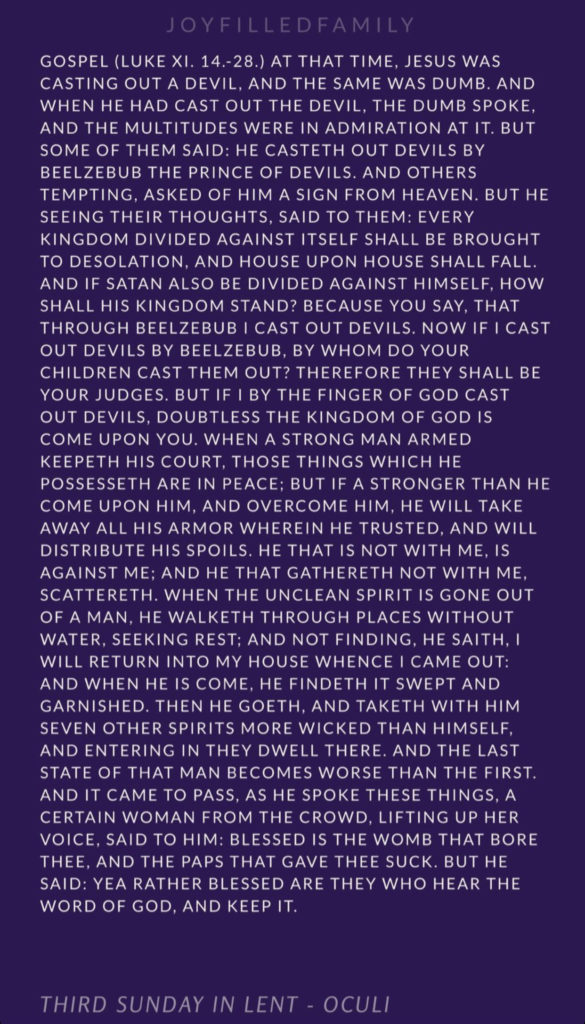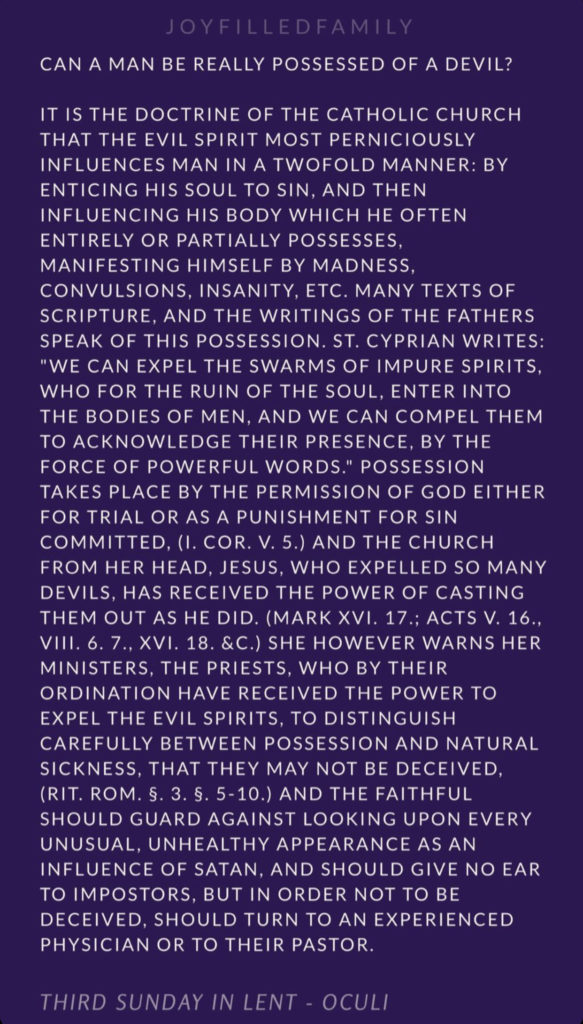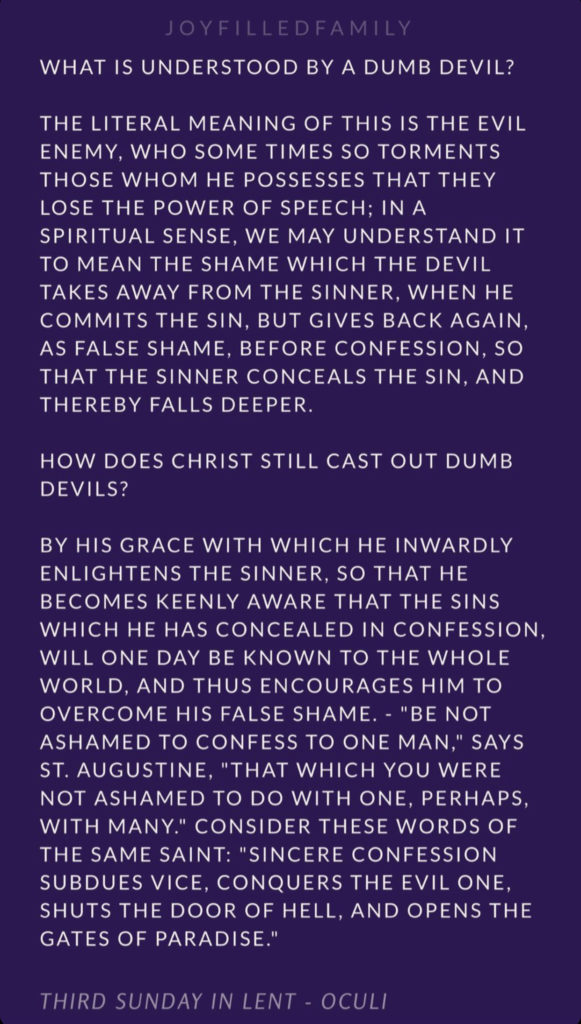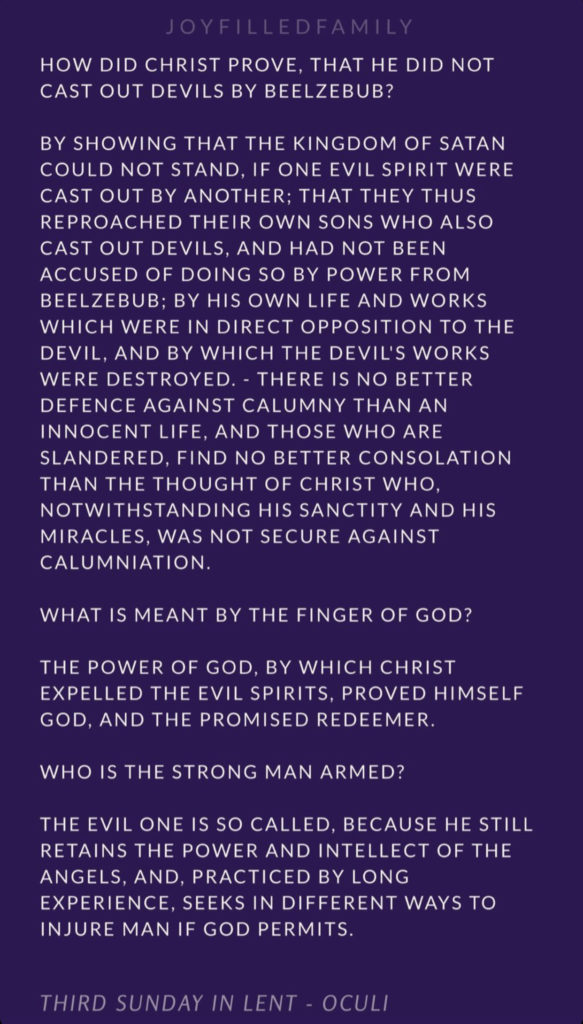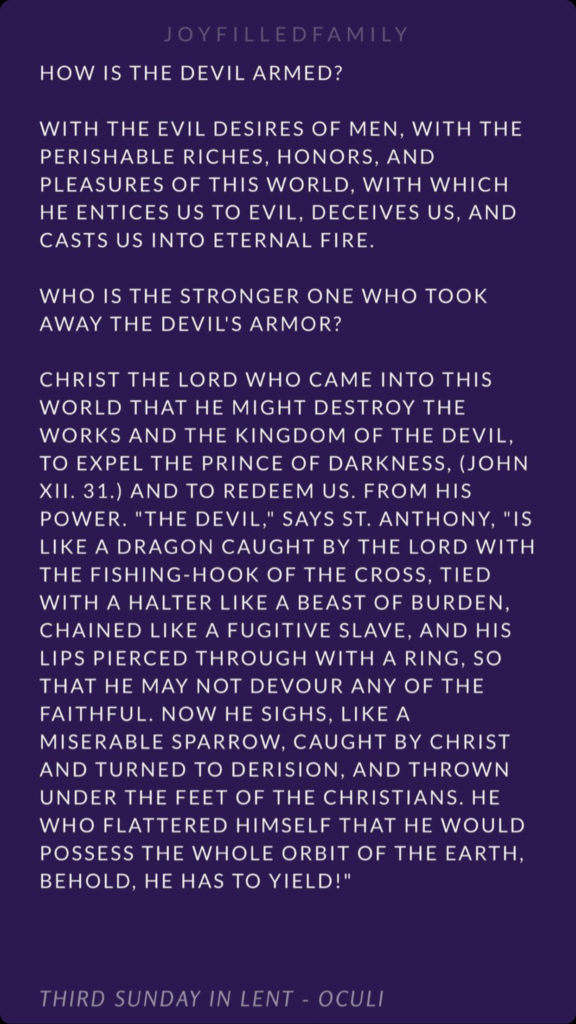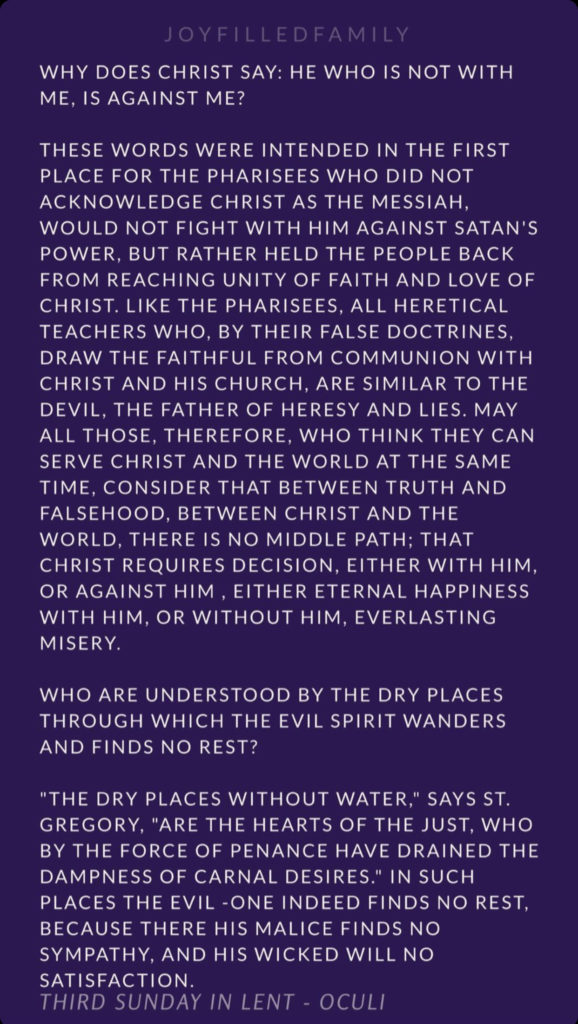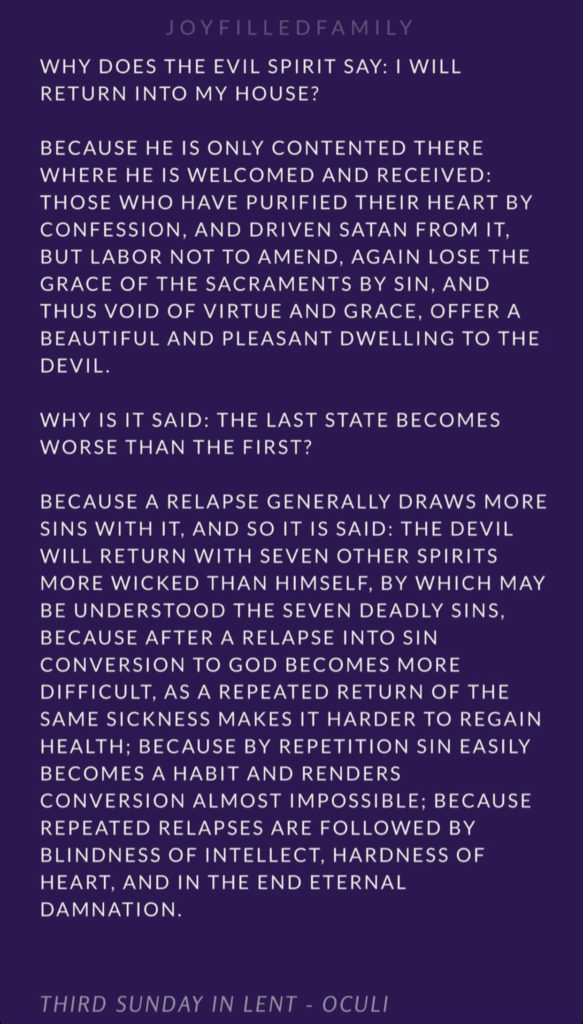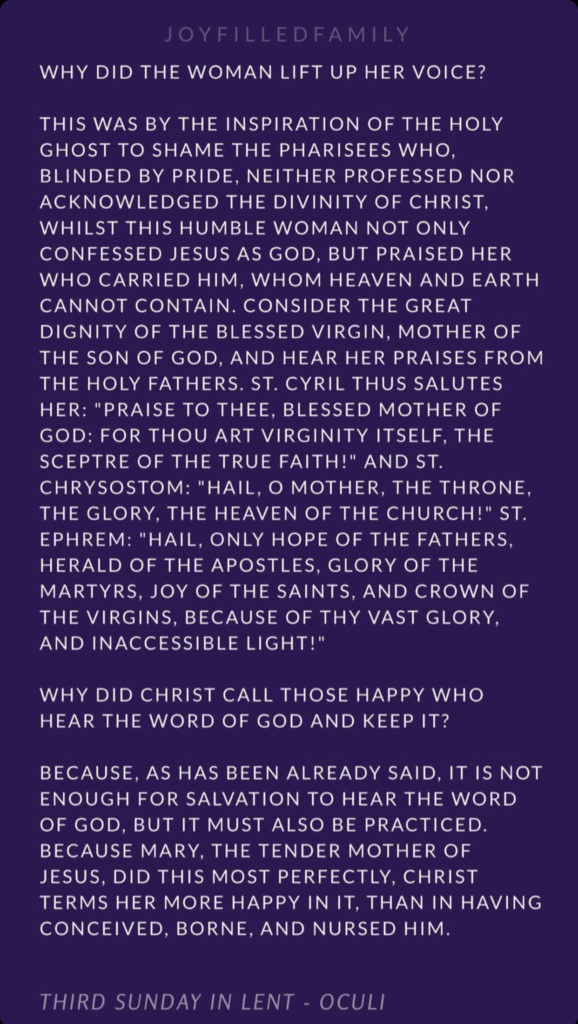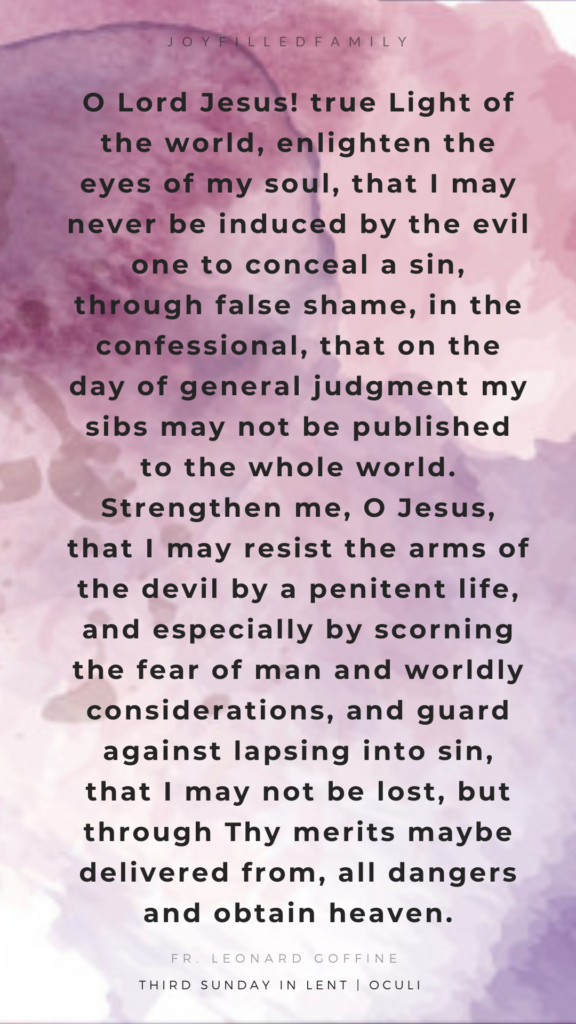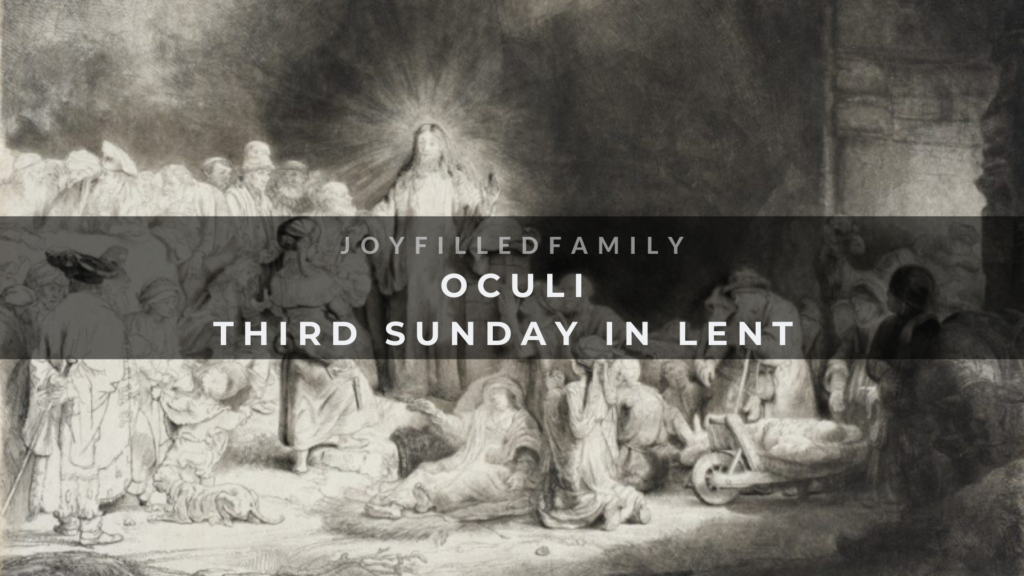Below is instruction on Good Friday by Fr. Leonard Goffine, The Church’s Year.
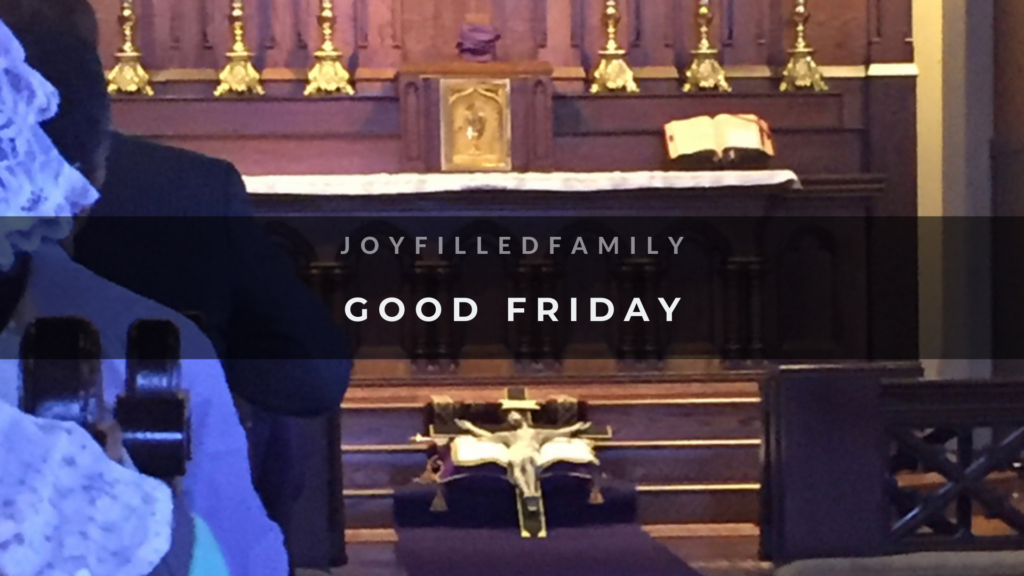
INSTRUCTION ON GOOD FRIDAY
This day was formerly for the Jewish people a day of preparation for Easter, and was called by them the Parasceve; for us Christians it is the anniversary of the death and burial of our Lord who on this day, being Himself both High-Priest and Victim, offered Himself upon the cross for the salvation of the world.
Why do Catholics hold this day in such veneration?
Because it is one of the greatest days from the beginning of the world to its end. On this day the designs which God had from all eternity were perfected, as Jesus Himself expressed when He said, All is consummated; for on this day He was given up to the Gentiles by the Jews, was scourged, crowned with thorns, loaded with the cross, dragged to Calvary amid taunts and sneers, there nailed to the cross between two thieves, and by His painful death finished the great work of redemption.
Why did Christ suffer so much to redeem, us?
To show us what an immense evil sin is, on account of which He underwent such cruel sufferings that He might satisfy divine justice. His love for us was so great that He gave the last drop of His blood to save us. He rendered satisfaction for all men without exception, that none might be lost, that every one might possess eternal life. Look up today, and every day of thy life, to Christ on the cross, and see how God punishes sin, since He did not even spare His only-begotten Son, who took upon Himself our sins, and for them died this cruel death. What death is due to thee, if thou dost not despise and flee from sin?
Why does the Church celebrate the commemoration of the passion of Christ in such solemn quietness?
That we may be induced to thank the Saviour for our redemption, and to move us to sincere love for Him by serious meditation on His passion. For this reason St. Paul ordered the observance of this day, and the Christians even in his time sanctified it by deep mourning, and rigorous fasting.
Why do we not observe Good Friday with such festivities as do the Protestants? [in Europe.]
Because our grief for our Saviour’s death is too great to permit us to celebrate it joyously, even nature mourned His death; the sun was darkened, the earth trembled and the rocks were rent. Although the Christian rejoices on this day in the grace of redemption through Christ, he is aware that his joy cannot be pleasing to God unless he endeavors to participate in the merits of the passion and death of Christ by sorrow for his sins, by amendment and penance; and this is the very reason why the Church solemnizes this day in a sad and touching manner.
Why are there no candles lighted at the beginning of the service?
To signify that on this day Christ, the Light of the world, became, as it were, extinguished.
Why does the priest prostrate himself before the altar at the beginning of the service?
That with him we should consider in deepest sorrow and humility how the Saviour died on the cross for our sins, and how unworthy we are on account of them to lift up our faces.
Why does the service commence with the reading of two lessons?
Because Christ died for Jews and Gentiles. The first lesson is from the Prophet Osee, (Osee VI, 1-6.) and the other from Exodus, (Exod. XII. 1-11.) from them we infer that by the bloody death of the immaculate Lamb Jesus we are healed of our sins, and redeemed from death.
After the first lesson the Priest says the following:
COLLECT O God! from whom Judas received the punishment of his sin, and the thief the reward of his confession: grant us the effects of Thy mercy; that as our Lord Jesus Christ at the time of His passion bestowed on each a different recompense of his merits, so having destroyed the old man in us, He may give us the grace of His Resurrection. Who liveth, & c.
REMARK After the Passion the priest prays in behalf of the one, only true Church, that she may increase, and that peace and unity may always remain with her; for the pope, that his government may be blessed; for the bishops, priests, the clergy, and the people, that they may serve God in justice; for those converted to the faith, that they may continue to grow an knowledge and a zeal for the holy religion; for rulers as defenders of the Church, that they may govern with wisdom and justice, and that those under them may be loyal to them with fidelity and obedience; for the unfortunate, that God may have mercy on them; for heretics and apostates, that they may be brought back from error to the truth of the Catholic faith; for the Jews, that they may be enlightened; for the heathens, that they may be converted. Before each prayer the priest says Oremus, Let us pray Flectamus genua, (Let us kneel) when kneeling, we say Amen, and at the call Levate (Rise up) we rise: except at the prayer for the Jews, when the genuflection is omitted, because the Jews bent the knee in mockery before our Lord. As Christ on this day prayed for all men, the Church desires, that we do the same; say, therefore, the following:
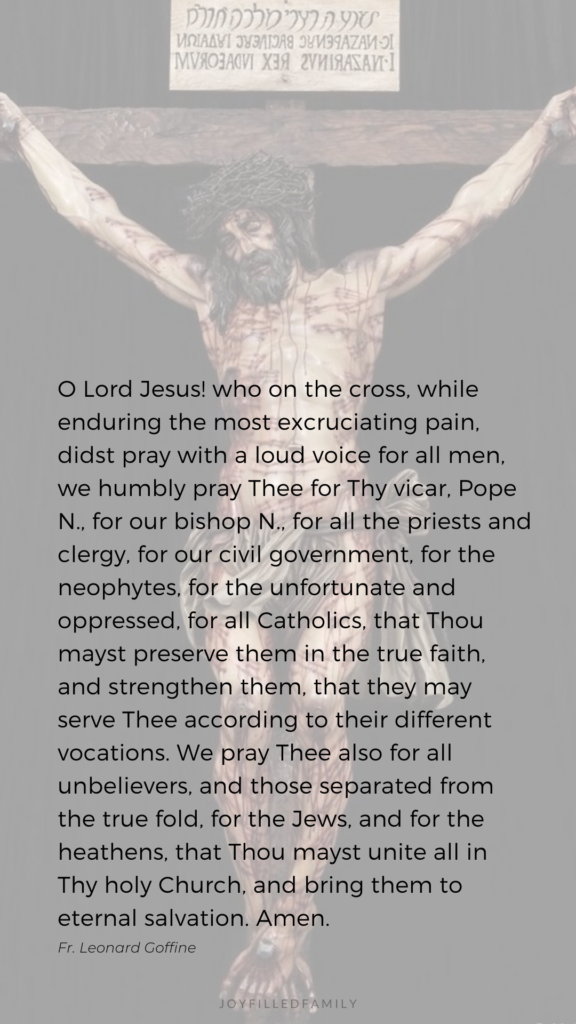
PRAYER O Lord Jesus! who on the cross, while enduring the most excruciating pain, didst pray with a loud voice for all men, we humbly pray Thee for Thy vicar, Pope N., for our bishop N., for all the priests and clergy, for our civil government, for the neophytes, for the unfortunate and oppressed, for all Catholics, that Thou mayst preserve them in the true faith, and strengthen them, that they may serve Thee according to their different vocations. We pray Thee also for all unbelievers, and those separated from the true fold, for the Jews, and for the heathens, that Thou mayst unite all in Thy holy Church, and bring them to eternal salvation. Amen.
What is done by the priest after these prayers?
The priest then goes down from the epistle side of the altar, takes the veiled crucifix, and extending it towards the people, uncovers it so much that the head is seen, and sings in a low voice: Ecce lignum crucis, &c.: Behold the wood of the cross on which the Salvation of the world was hanged! The choir answers: Venite, adoremus: Come, let us adore! at which all kneel, adoring Christ who died on the cross for us. The priest then advances to the corner of the altar, uncovers the right arm of the Crucifix, and sings in a higher tone: Ecce lignum crucis, &c.; to which the choir responds as before. Then at the middle of the altar he uncovers the entire Crucifix, and elevating it, sings in a still higher tone than before: Ecce lignum, &c. The choir responds again: Venite adoremus. The image of the crucified Redeemer, which has been hidden from our view since Passion Sunday should make a deep impression upon us; it teaches us at the same time how the Saviour became gradually known to the world. Jesus is adored three times, because He was mocked three times: in the court-yard of the high-priest, in Pilate’s house, and on mount Calvary. When the crucifix is unveiled the priest carries it to the place prepared for it, and kneeling he places it on the cushion covered with a white veil to represent the laying of Christ in the sepulchre; he then retires to the gospel side of the Altar where he puts off his shoes, like Moses, when he was about to approach Almighty God; he then kneels and meditates on the passion of Christ; goes a few steps forward, again kneels, and still a third time, this time directly in front of the crucifix. He adores Jesus with humility, considers His infinite love, which brought Him to the cross and laid Him in the sepulchre for our Redemption; and then kisses with reverence the image of the crucified Saviour. During this veneration of the cross the choir chants alternately the versicles called the Reproaches, and between each part of the canticle the following words in Greek and Latin: “Holy God! Holy and strong God! Holy and immortal God! have mercy on us!” In these versicles Christ tenderly and lovingly reproaches the people who crucified Him, which we may also take to ourselves, who have so often crucified Jesus anew by sin. They are therefore called reproaches, words of complaint, and continue during the veneration of the cross by the priest. Afterwards a hymn of praise composed by St. Fortunatus is sung in honor of the victory gained on the cross by our Saviour, which calls upon us also to render praise and thanks to Jesus crucified.
Adore also in deepest humility the Saviour who died on the cross, and is now victoriously enthroned; ask with sincere contrition the forgiveness of your sins, and by a threefold advance, kiss with sincere love His sacred wounds, promising to love all men, even your enemies, and to have pity on all in distress, according to His example.
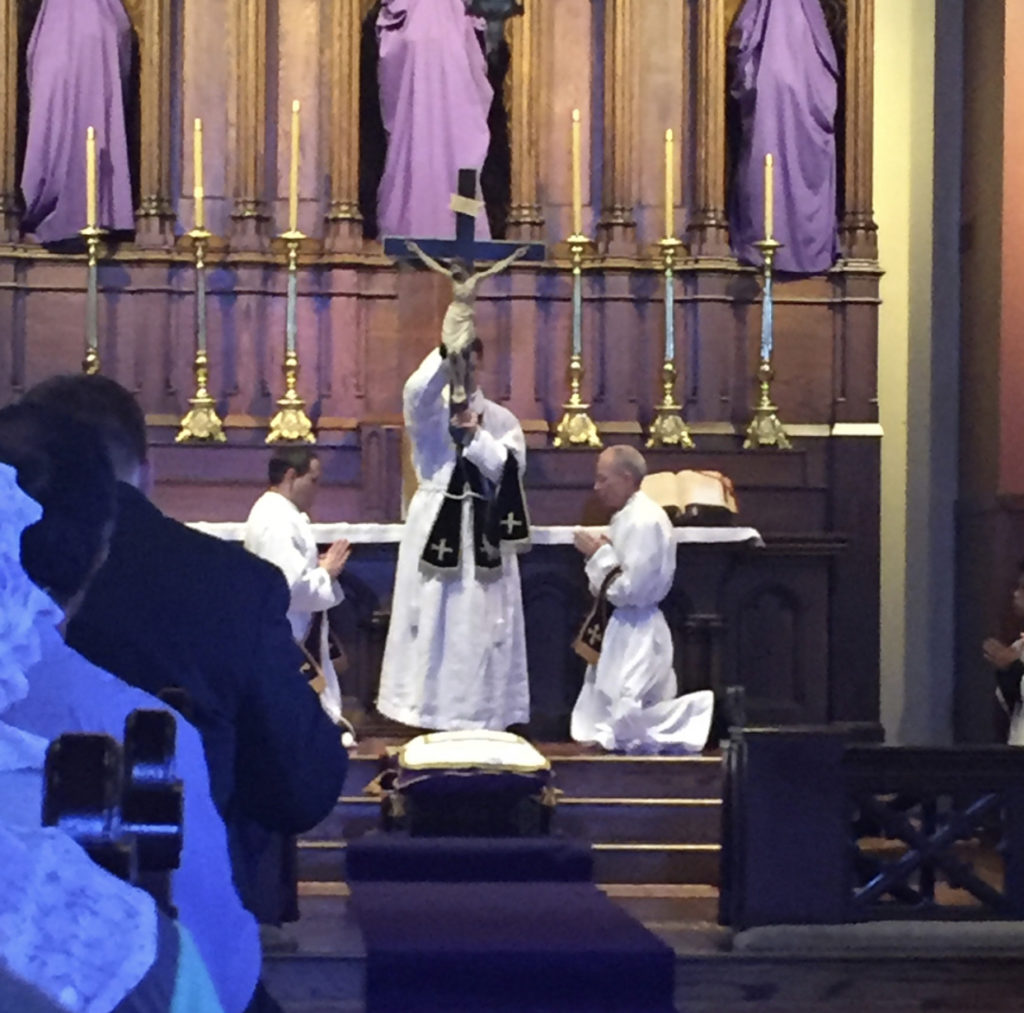
What follows the veneration of the cross?
The sacred Host consecrated on Holy Thursday, and kept in the chalice, is brought by the priest in procession, from the repository to the high altar, incensed in sign of adoration, and after a few short prayers the priest elevates It with the right hand, breaks It, puts one part in the chalice and communicates, and soon after leaves the altar.
Is there, then, no Mass said on this day?
No; for on this day there is no bread and wine consecrated, which is the essential part of the Sacrifice of the Mass.
Why is no Mass said on this day?
Because Jesus Christ having this day sacrificed Himself on the altar of the cross in a bloody offering, it is not meet that His death sacrifice should be today repeated even in an unbloody manner. Besides this, Mass is a joyous and comforting sacrifice, and is therefore omitted because of our mourning.
What devotions may be practiced today?
Besides adoring Jesus in the holy sepulchre, the stations may be said, meditations made on the sufferings of our Lord. Let the words of St. Augustine touch your heart, when he places the crucified Redeemer before our mind in the following words: “Behold the wounds of Jesus who is hanging on the cross, the blood of the dying, the price of our redemption! His head is bowed to give the kiss of peace; His side is open to love; His arms are extended to embrace us; His whole body sacrificed for our redemption. Let these words be the subject of your meditation that He may be wholly in your heart who is nailed to the cross for you.”
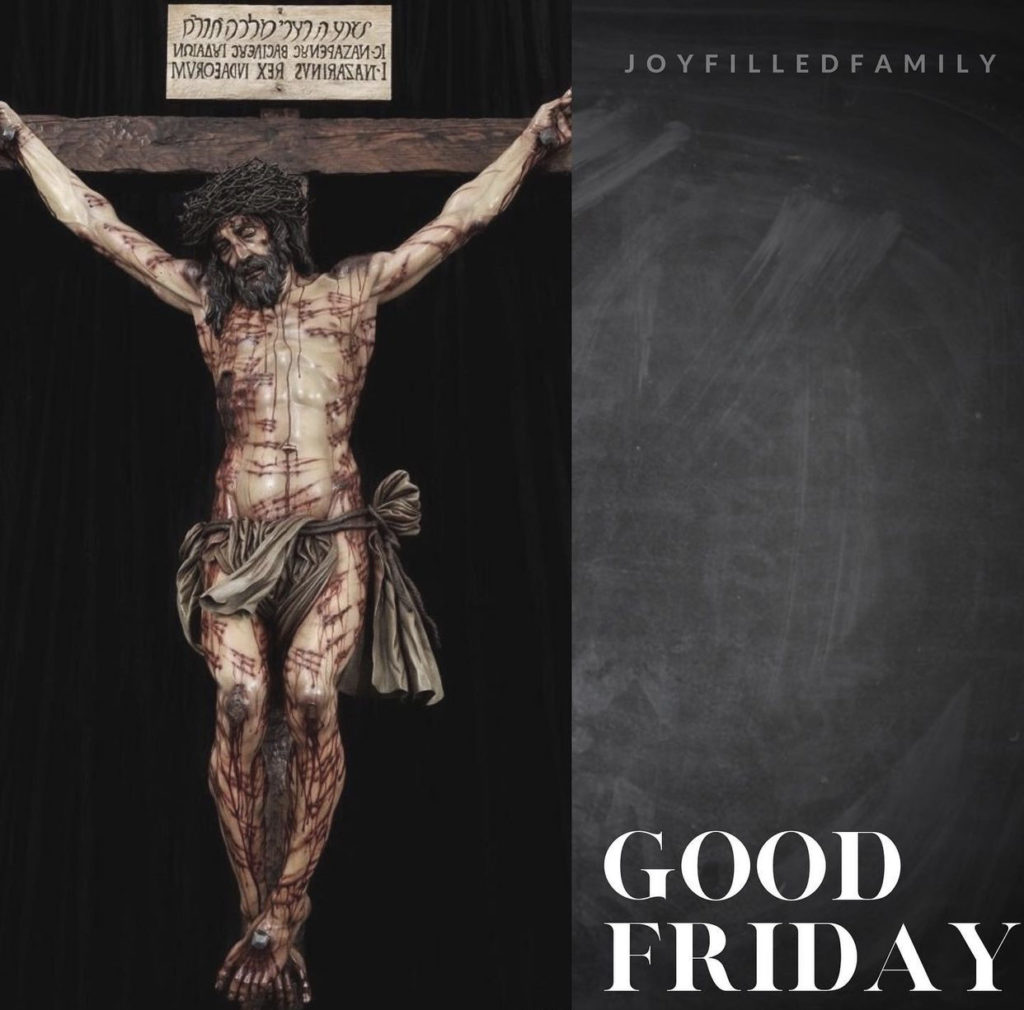
MANNER OF CONTEMPLATING CHRIST’S BITTER PASSION
Christ also suffered for us: leaving you an example that you should follow his steps. (I Peter II. 21.)
Whence does it come,” writes St. Alphonsus Ligouri, “that so many of the faithful look with so much indifference at Christ on the cross? They generally assist during Holy Week at the commemoration of His death without any feeling of gratitude or compassion, as if it were a fable or an event in which they had no interest. Know they not, or believe they not what the gospel relates of Christ’s passion? Indeed they know it, and believe it, but do not think of it. It is impossible that he who believes and meditates, should fail to become burning with love for God who suffers and dies for love of him.” But why, we may ask here, are there so many who draw so little benefit even from the contemplation of the passion and death of Jesus? Because they fail to consider and imitate the example which Christ gives in His sufferings.
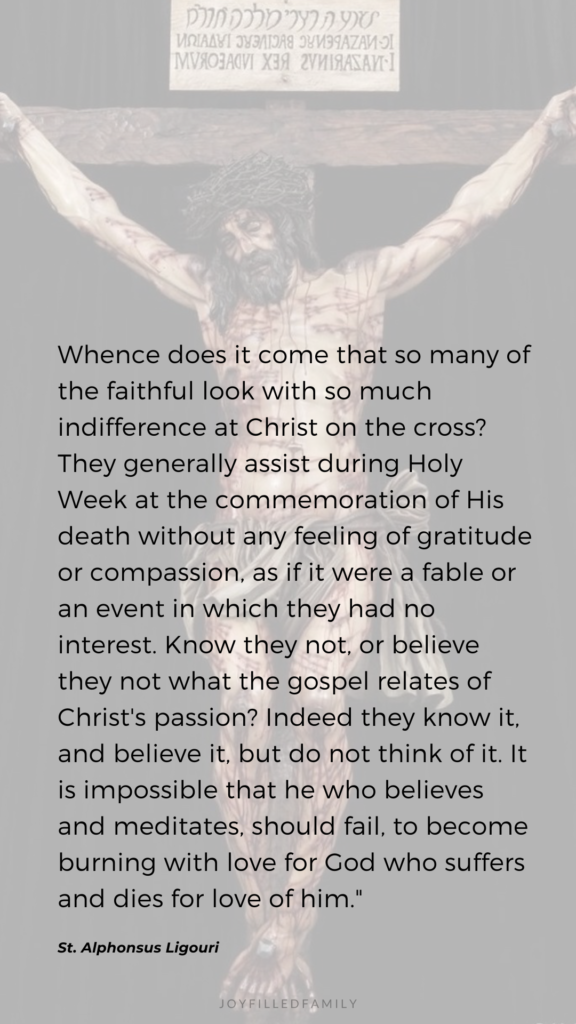
“The cross of Christ,” says St. Augustine, “is not only a bed of death, but a pulpit of instruction.” It is not only a bed upon which Christ dies, but the pulpit from which He teaches us what we must do. It should now be our special aim to meditate upon the passion of Christ, and to imitate those virtues which shone forth so preeminently in His passion and death. But many neglect to do this: They usually content themselves with compassion when they see Christ enduring such great pains, but they see not with what love, humility, and meekness He bears them; and so do not endeavor to imitate His example. That you, O Christian soul, may avoid this mistake, and that you may draw the greatest possible benefit for your soul, from the contemplation of the passion, and death of Christ, attend to that which is said of it by that pious servant of God, Alphonse Rodriguez:
We must endeavor to derive from the meditation on the mysteries of the passion and death of Christ this effect, that we may imitate His virtues, and this by slowly and attentively considering each virtue by itself, exercising ourselves in forming a very great desire for it in our hearts, making a firm resolution to practice it in words and works, and also to conceive a holy aversion and horror of the opposite vice; for instance, when contemplating Christ’s condemnation to the death of the cross by Pilate, consider the humility of Jesus Christ, who being God, as humble as He was innocent, voluntarily submitted and silently accepted the unjust sentence and the ignominious death. Here you see from the example given by Jesus, how you should despise yourself, patiently bear all evil, unjust judgment; and detraction, and even seek them with joy as giving you occasion to resemble Him. To produce these necessary effects and resolutions, you should at each mystery contemplate the following particulars:
First, Who is it that suffers? The most innocent, the holiest, the most loving; the only-begotten Son of the Almighty Father, the Lord of heaven and earth. Secondly; What pains and torments, exterior and interior, does He suffer? Thirdly, In what manner does He suffer, with what patience, humility, meekness and love, does He bear all ignominy and outrage? Fourthly, For whom does He suffer? For all men, for His enemies and His executioners. Fifthly, By whom does He suffer? By Jews and heathens, by soldiers and tyrants, by the devil and all impious children of the world to the end of time, and all who were then united in spirit with His enemies. Sixthly, Why does He suffer? To make reparation for all the sins of the whole world, to satisfy the justice of God, to reconcile the Heavenly Father, to open heaven, to give us His infinite merits that we may from them have strength to follow the way to heaven. At the consideration of each of these points, and indeed at each mystery of the passion of Christ, the imitation of the example of His virtues is the main object, because the true life of the Christian consists in the imitation of Jesus. In considering each stage of the passion of Christ place vividly before your mind the virtue which He practiced therein; contemplate it and ask yourself whether you possess this virtue, or whether you still cherish the opposite vice. If you find the latter to be the case make an act of contrition, with the firm resolution to extirpate this vice, and excite in yourself a sincere desire for the opposite virtue. In this way you will draw the greatest advantage from the contemplation of Christ’s passion, and will resemble Christ, and, as the pious Louis of Granada says, there can be no greater honor and adornment for a Christian than to resemble his divine Master, not in the way that Lucifer desired, but in that which He pointed out, when He said: “I have given you an example, that as I have done to you, so do you also.”
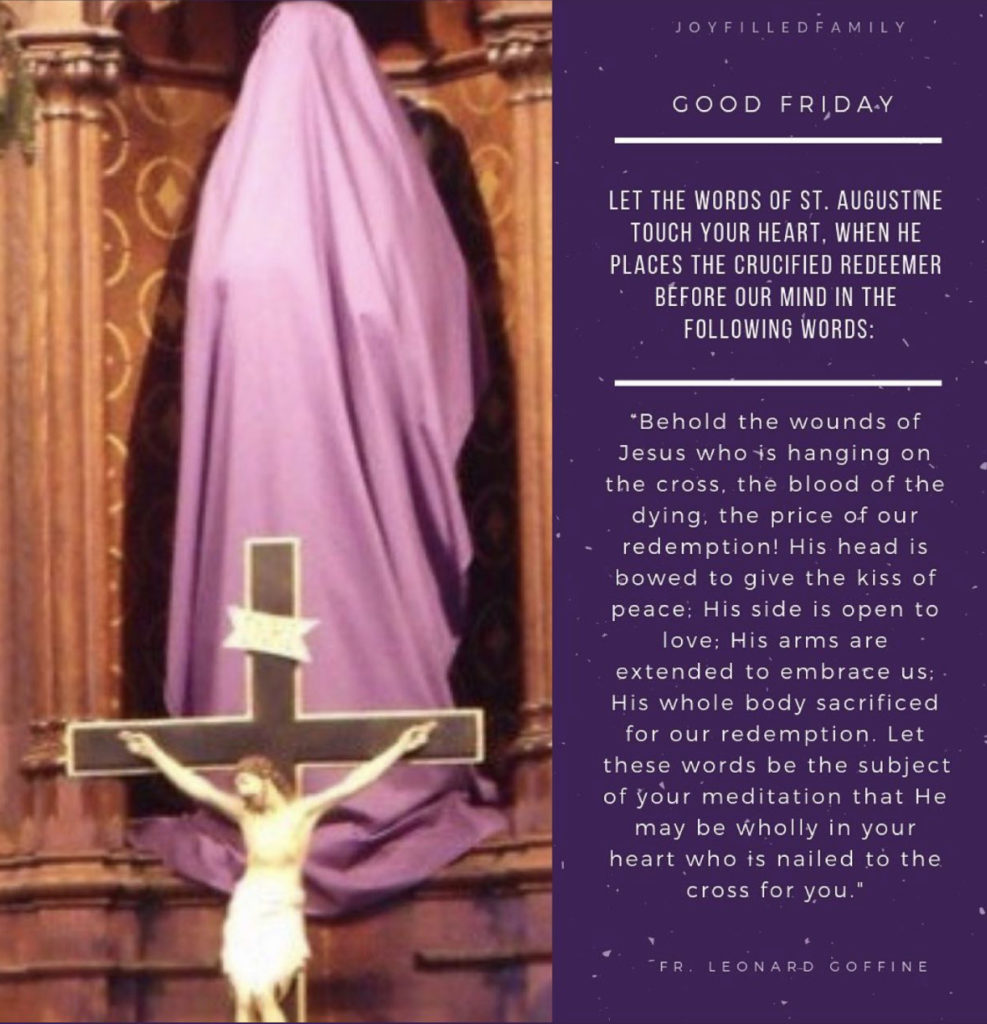
THE PASSION OF OUR LORD JESUS CHRIST
ACCORDING TO ST. JOHN. (CHAPS. XVIII., XIX.)
At that time, Jesus went forth with his disciples, over the brook of Cedron, where there was a garden into which he and his disciples entered. Now Judas also, who betrayed him, knew the place: because Jesus had often resorted thither together with his disciples. Judas therefore having received a band of men and servants from the chief priests and the Pharisees, cometh thither with lanterns and torches and weapons. Jesus, therefore, knowing all things that should come upon him, went forth and said to them: Whom seek ye? They answered him: Jesus of Nazareth. Jesus saith to them: I am he. And Judas also, who betrayed him, stood with them. As soon then as he had said to them: I am he; they went backward, and fell to the ground.
Again therefore he asked them: Whom seek ye? And they said: Jesus of Nazareth. Jesus answered: I have told you, that I am he. If therefore you seek me, let these go away. That the word might be fulfilled which he had said: Of them whom thou hast given me, I have not lost any one. Then Simon Peter having a sword, drew it, and struck the servant of the high-priest, and cut off his right ear. And the name of the servant was Malchus. Then Jesus said to Peter: Put up thy sword into the scabbard. The cup which my Father hath given me, shall not I drink it?
Then the band, and the tribune, and the servants of the Jews took Jesus, and bound him: and they led him away to Annas first: for he was father-in-law to Caiphas, who was the high-priest of that year. Now Caiaphas was he who had given the counsel to the Jews, that it was expedient that one man should die for the people.
And Simon Peter followed Jesus, and so did another disciple. And that disciple was known to the high-priest, and went in with Jesus into the palace of the high-priest. But Peter stood at the door without. Then the other disciple who was known to the high-priest, went out, and spoke to her that kept the door: and brought in Peter. And the maid that waited at the door, saith to Peter: Art not thou also one of this man’s disciples? He saith : I am not.
Now the servants and officers stood at a fire of coals, because it was cold, and warmed themselves: and with them was Peter also standing, and warming himself.
The high-priest then asked Jesus of his disciples, and of his doctrine. Jesus answered him: I have spoken openly to the world: I have always taught in the synagogue, and in the temple, whither all the Jews resort: and in secret I have spoken nothing. Why askest thou me? ask them who have heard what I have spoken to them: behold they know what things I have said. And when he had said these things, one of the officers standing by, gave Jesus a blow, saying: Answerest thou the high-priest so? Jesus answered him: If I have spoken, evil, give testimony of the evil: but if well, why strikest thou me?
And Annas sent him bound to Caiphas the high-priest.
And Simon Peter was standing and warming himself. They said therefore to him: Art not thou also one of his disciples? He denied it and said: I am not. One of the servants of the high-priest, a kinsman to him whose ear Peter, cut off, saith to him: Did not I see thee in the garden with him? Then Peter: again denied, and immediately the cock crowed. Then they led Jesus from Caiphas to the governor hall. And it was morning: and they went not into the hall, that they might not be defiled, but that they might eat the passover.
Pilate therefore went out to there, and said: What accusation bring you against this man? They answered and said to him: If he were not a malefactor, we would not have delivered him up to thee. Pilate then said to them: Take him you, and judge him according to your law. The Jews therefore said to him: It is not lawful for us to put any man to death. That the word of Jesus might be fulfilled which he said, signifying what death he should die. Pilate therefore went into the hall again, and called Jesus, and said to him: Art thou the king of the Jews? Jesus answered: Sayest thou this thing of thyself, or have others told it thee of me. Pilate answered: Am I a Jew? Thy own nation, and the chief priests have delivered thee up to me. What hast thou done? Jesus answered: My kingdom is not of this world. If my kingdom were of this world, my servants would certainly strive that I should not be delivered to the Jews: but now my kingdom is not from hence. Pilate therefore said to him: Art thou a king then? Jesus answered: Thou sayest that I am a king. For this was I born, and for this came I into the world, that I should give testimony to the truth: every one that is of the truth, heareth my voice.
Pilate saith to him: What is truth?
And when he had said this, he went out again to the Jews, and saith to them: I find no cause in him. But you have a custom that I should release one unto you at the passover: will you therefore that I release unto you the king of the Jews? Then cried they all again, saying: Not this man, but Barabbas. Now Barabbas was a robber.
Then, therefore, Pilate took Jesus, and scourged him. And the soldiers platting a crown of thorns, put it upon his head: and they put on him a purple garment, and they came to him, and said: Hail, King of the Jews! And they gave him blows. Pilate, therefore, went forth again, and saith to them: Behold I bring him forth to you that you may know that I find no cause in him. So Jesus came forth wearing the crown of thorns, and the purple garment. And he saith to them: Behold the man. When the chief priests, therefore, and the officers had seen him, they cried out, saying: Crucify him, crucify him. Pilate saith to them: Take him you, and crucify him; for I find no cause in him. The Jews answered him: We have a law; and according to the law he ought to die, because he made himself the Son of God. When Pilate therefore had heard this saying, he feared the more. And he entered into the hall again, and he said to Jesus: Whence art thou? But Jesus gave him no answer. Pilate therefore said to him: Speakest thou not to me? knowest thou not that I have power to crucify thee, and I have power to release thee? Jesus answered: Thou shouldst not have any power against me, unless it were given thee from above. Therefore he that hath delivered me to thee, hath the greater sin. And from thenceforth Pilate sought to release him. But the Jews cried out, saying: If thou release this man, thou art not Caesar’s friend. For whosoever maketh himself a king, speaketh against Caesar.
Now when Pilate had heard these words, he brought Jesus forth: and sat down in the judgment-seat, in the place that is called the Pavement, and in Hebrew, Gabbatha. And it was the parasceve of the passover, about the sixth hour, and he saith to the Jews: Behold your king. But they cried out: Away with him, away with him, crucify him. Pilate saith to them: Shall I crucify your king? The chief priests answered: We have no king but Ceasar. Then therefore, he delivered him to them to be crucified. And they took Jesus, and led him forth. And bearing his own cross he went forth to that place which is called Calvary, but in Hebrew, Golgotha, where they crucified him, and with him two others, one on each side, and Jesus in the midst. And Pilate wrote a title also, and he put it upon the cross. And the writing was: Jesus of Nazareth, the king of the Jews.
The title, therefore, many of the Jews did read, because the place where Jesus was crucified was nigh to the city: and it was written in Hebrew, in Greek, and in Latin. Then the chief-priest of the Jews said to Pilate: Write not, the king of the Jews: but that he said: I am the king of the Jews. Pilate answered: What I have written, I have written. Then the soldiers, when they had crucified him, took his garments (and they made four parts, to every soldier a part) and also his coat. Now the coat was without seam, woven from the top throughout.
They said then one to another: Let us not cut it, but let us cast lots for it, whose it shall be: that the Scripture might be fulfilled which saith: They have parted my garments among them, and upon my vesture they have cast lots. And the soldiers did indeed these things. Now there stood by the cross of Jesus, his mother, and his mother’s sister, Mary of Cleophas, and Mary Magdalene.
When Jesus therefore saw his mother, and the disciple standing, whom he loved, he saith to his mother: Woman! behold thy son. After that, he saith to the disciple: Behold thy mother. And from that hour the disciple took her to his own. Afterwards, Jesus knowing that all things were now accomplished, that the Scripture might be fulfilled, said: I thirst. Now there was a vessel set there full of vinegar. And they put a sponge full of vinegar, about hyssop, and put it to his mouth. When Jesus, therefore, had taken the vinegar, he said: It is consummated. And bowing his head, he gave up the ghost.
Then the Jews (because it was the parasceve) that the bodies might not remain upon the cross on the Sabbath-day(for that was a great Sabbath-day), besought Pilate that their legs might be broken, and that they might be taken away. The soldiers, therefore, came: and they broke the legs of the first, and of the other that was crucified with him.
But after they were come to Jesus, when they saw that he was already dead, they did not break his legs. But one of the soldiers opened his side with a spear, and immediately there came out blood and water. And he that saw it gave testimony, and his testimony is true. And he knoweth that he saith true, that you also may believe.
For these things were done that the Scripture might be fulfilled: You shall not break a bone of him. And again another Scripture saith: They shall look on him whom they pierced.
And after these things, Joseph of Arimathea (because he was a disciple of Jesus, but secretly for fear of the Jews), besought Pilate that he might take away the body of Jesus. And Pilate gave him leave. He came therefore and took away the body of Jesus. And Nicodemus also came, he who at the first came to Jesus by night, bringing a mixture of myrrh and aloes; about a hundred pound weight.
They took therefore the body of Jesus, and wrapped it in linen cloths with the spices, as the manner of the Jews is, to bury. Now there was a garden in the place where he was crucified; and in the garden a new sepulchre, wherein no man yet had been laid. Therefore, because of the parasceve of the Jews, they laid Jesus there; for the sepulchre was nigh at hand.
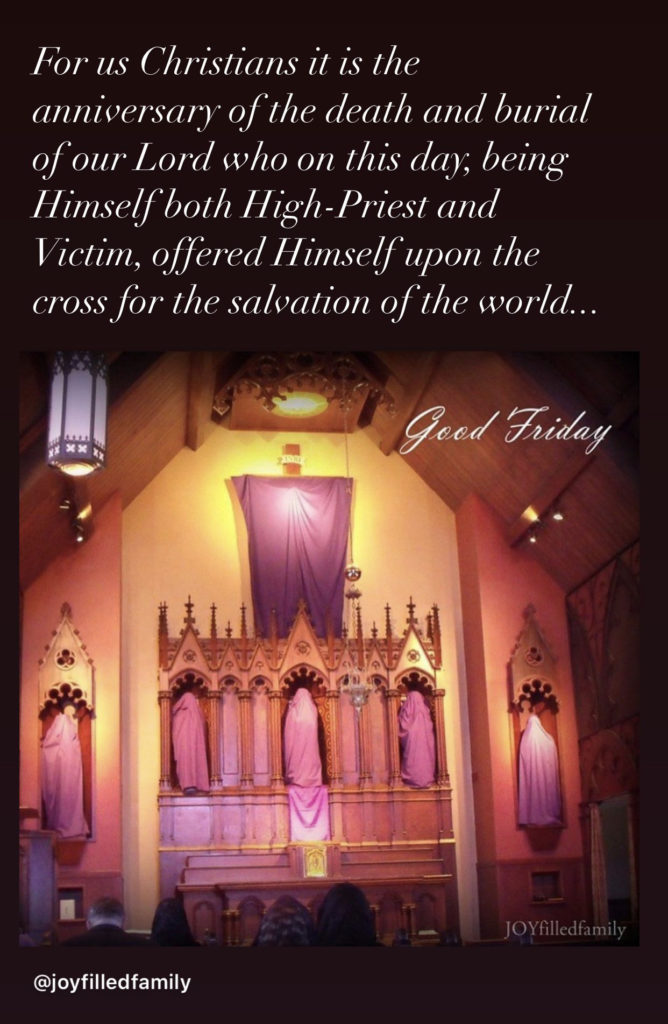
THE PEOPLE AT THE CROSS, AND THE PEOPLE OF TODAY
At Golgotha, in sight of the temple and city of Jerusalem, in the presence of two or three millions of Jews, who had come to the city from all lands, Jesus, the Son of God, hung upon the cross, an expiatory sacrifice for mankind burdened with all manner of sin. Near cross of her dying Son stood Mary, His mother, filled with grief; by her side John, the beloved disciple, and kneeling at the foot of the cross almost insensible from sorrow and anguish, convulsively winding her arms around the wood of the cross, was Mary Magdalen, the penitent. On a cross at the right hand hung a penitent thief turned towards the Saviour; at the left hand on another cross groaned another criminal of impenitent heart, blaspheming the Holy One of Israel. Around the agonizing Saviour stood the Scribes and Pharisees, that hypocritical class of practiced miscreants, who hated and persecuted the innocent Lamb Jesus, even in death, who blink to all the predictions of the prophets whose books they had read, blind to the actual miracles which Jesus had wrought before their eyes to prove His divinity and His mission, filled with envy and hatred, reviled the dying Redeemer. At a distance stood a crowd of curious, indifferent people, who had come to Jerusalem to attend the feast of the Passover, and having heard of Jesus were present at His crucifixion. Not far from them the rough soldiers and executioners lay around, dividing among themselves the Saviour’s clothes and casting lots for His seamless garment.
This was the society that surrounded the Son of God and Redeemer of the world bleeding on the cross, and in their different phases they are types of the men of today.
Only few were there who clung to the Saviour in unwavering faith and true love, ready to die with Him, and for Him. There were few who suffered all taunts and sneers all revilings and blasphemies and departed not from the cross. Of these three were especially faithful, viz. Mary, John, and Magdalen. Those who like Mary and John are pure and innocent, or like Magdalen are weeping for their sins, who confess Jesus with their heart and lips, cling faithfully to Him, and permit neither persecution nor death to separate them from Him, are like the faithful three at the cross. As then by the cross, so today, the number of the faithful is small, and great is the number of those who, like the careless spectators of the crucifixion, are not decided enemies of Jesus crucified, nor yet His firm friends. They have indeed been baptized in the name of Jesus, they remain externally with the Catholic Church, which Christ founded, but they are sunk in lukewarmness, have no living faith, and are wavering to and fro like a reed between the world and Jesus. They fear the sneers of the so-called learned and enlightened, many of whom are well represented by the Scribes and Pharisees, who, having no faith in Christ themselves, bear in their hearts only hatred and contempt for His Church; they shun the cross, because it is too heavy for their sensuality; they do not, it is true, commit public crimes, they prize highly a good name, occasionally observe the law of the Church, but are accessible to every error; their ears incline to every blasphemy against the religion of Jesus and His ministers, the priests. Instead of standing fearlessly and boldly for Christ, for the holy faith He has taught, and which the Church teaches, they turn away, are silent, even go with the Church’s enemies that they may not be sneered at. The are neither hot, nor cold, so that the words of the Scriptures are verified in them: Because thou art lukewarm, and neither cold, nor hot, I will begin to vomit thee out of my mouth. (Apoc. III. 16.) The Lord casts away from Him these lukewarm, indifferent Christians, as nauseous saliva, and leaves them to their destruction. The true Pharisees of our day are those who purposely close their eyes to the light of truth, who have put aside faith in Jesus, and are no longer disposed to receive instruction. Their pride, their egotism has blinded them, with their poor reason they wish to understand the mysteries of ,the Almighty, with their weak intellect to fathom His ways, even seek to be equal to God; they deny every revealed truth, they deny the existence of heaven and hell, they propose to live like the animals, without God, — but their end is, ruin! Few of them, having seen their error, as the thief on the cross at the right hand of Jesus, turn repentingly to the Redeemer; obdurate as the robber and murderer at His left, the Pharisees of our day cease not to blaspheme the Crucified, and to revile His holy Church. These are assisted by the apostates and unbelievers, who, like the soldiers and executioners, divide among themselves His clothes, and cast lots for His seamless garment. Those clothes which the soldiers divided among themselves, are the truths which the apostates and heretics yet retain after their apostacy from the Church. They have divided these truths, for they have separated themselves into thousands of sects, and possess only portions of the one truth, which Jesus has laid down in. His Church, whole and complete. “Upon my vesture they have cast lots.”
This seamless vesture of Christ is His holy Church that cannot be separated or divided, she is one, and must remain one to the end of time. Concerning this one true Church, the sects all quarrel, all want to be the true Church without considering that, as but one soldier, by the lots, received Christ’s seamless garment, so only one association of men can be the true Church, and that is the association which Christ has chosen.
Thus we find at the cross on Golgotha the different classes of people of our day represented, namely, the pure and innocent; the repenting sinners, firm adherents of Jesus and His teachings; as also the lukewarm, wavering, nominal Christians; obdurate heretics, professed infidels and apostates. So today mankind is divided into like parties.
To which party do you belong, O Christian soul? To which do you wish to belong? Choose! The time of the division is near. The Lord already holds in His hand the winnowing shovel to clear His floor. If you are not a firm adherent of Jesus and His Church, in the storm that is gathering you will be blown like chaff. If you remain with the small group at the cross, in persevering courage, you will stand firm, and on the day when the cross shall appear in the clouds of heaven, you, with Mary, the mother of the faithful, with John and with Magdalen, will triumph forever, as a victorious knight of the cross. Decide!
